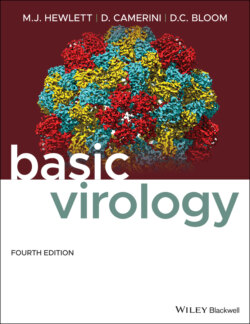Читать книгу Basic Virology - Martinez J. Hewlett - Страница 77
Herpes encephalitis
ОглавлениеEncephalitis induced by HSV infection is the result of a physiological accident of some sort. Normally, HSV's involvement with neurons of the CNS and brain is highly restricted, although viral genomes can be detected at autopsy in brain neurons of humans who have died of other causes.
HSV encephalitis occurs only very rarely, but can be a result of either primary infection or an aberrant reactivation. Exactly what features of viral infection or reactivation lead to encephalitis are unknown, but a lack of effective immunity appears to be a major factor. Certainly, there is a much higher risk of invasive HSV encephalitis in neonates and infants with primary HSV infection prior to full development of their own immune defenses. If diagnosed during early clinical manifestations of disease, HSV encephalitis can be treated effectively with antiviral drugs (see Chapter 8, Part II). But within a short period of time (a few days at most), infection leads to massive necrotic destruction of brain tissue, coma, and death.
Although clinical isolates of HSV are often high in neurovirulence and neuroinvasive indices when they are tested in laboratory animals, there is no evidence that the virus recovered from patients with herpes encephalitis is any more virulent than those isolated from the more common, localized facial or genital infections. Moreover, there has never been any confirmed epidemiological pattern to the occurrence of herpes encephalitis that would suggest a specific strain of virus as a causative factor.
